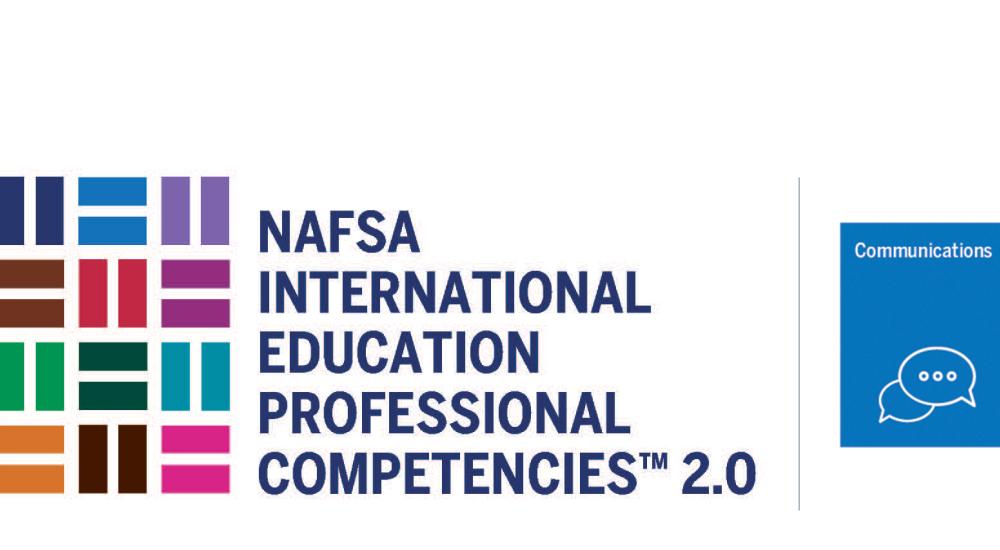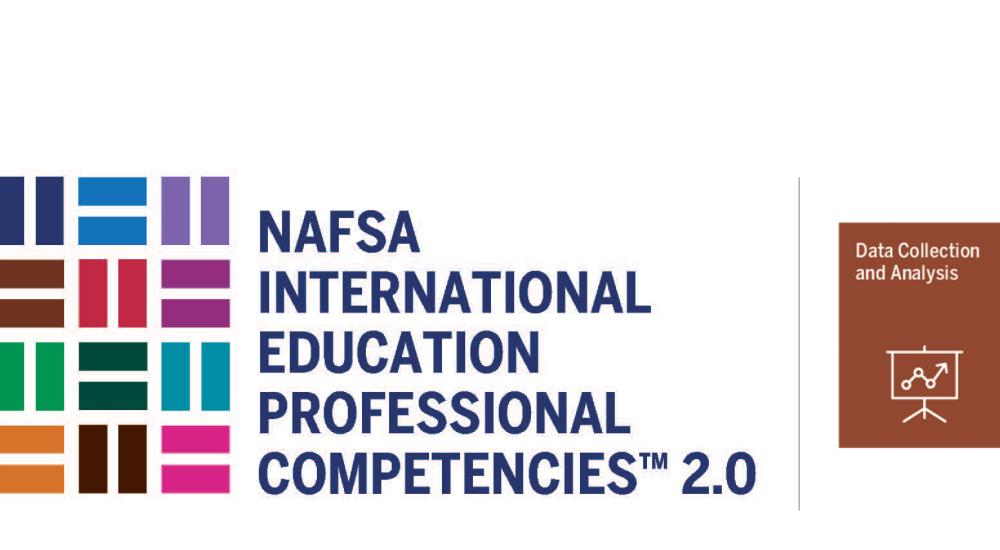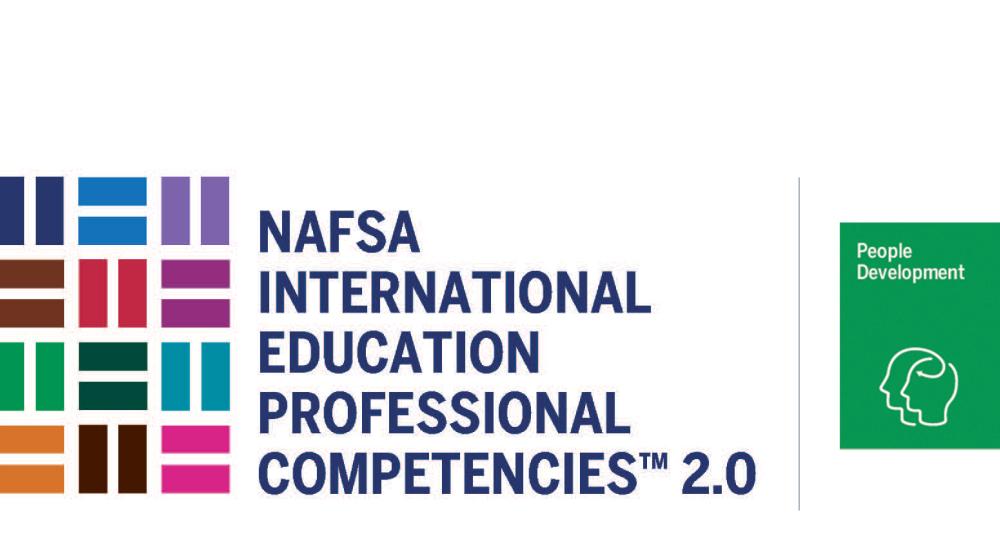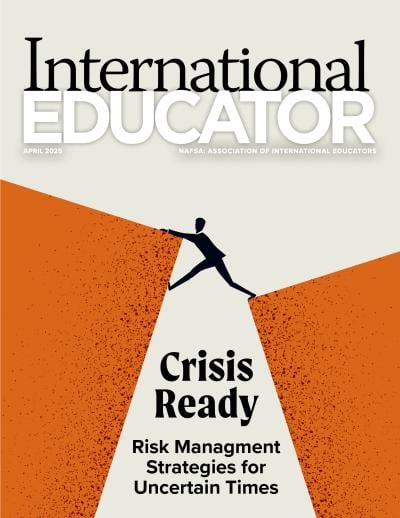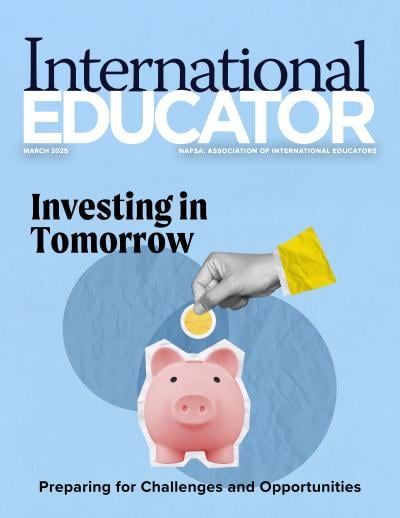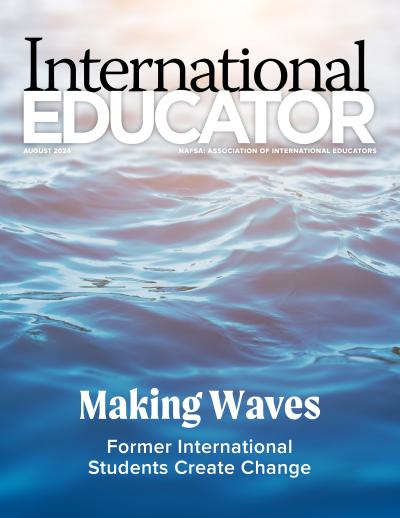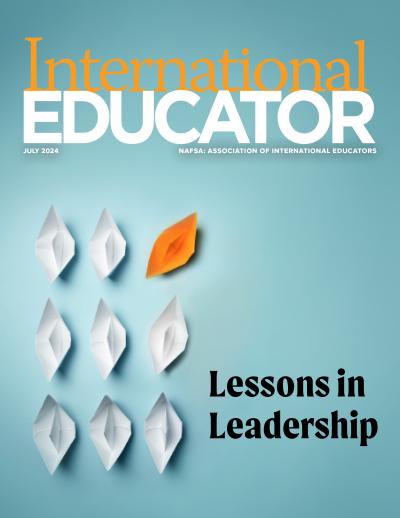Reflections on the NAFSA IE Competencies: Relationship Cultivation
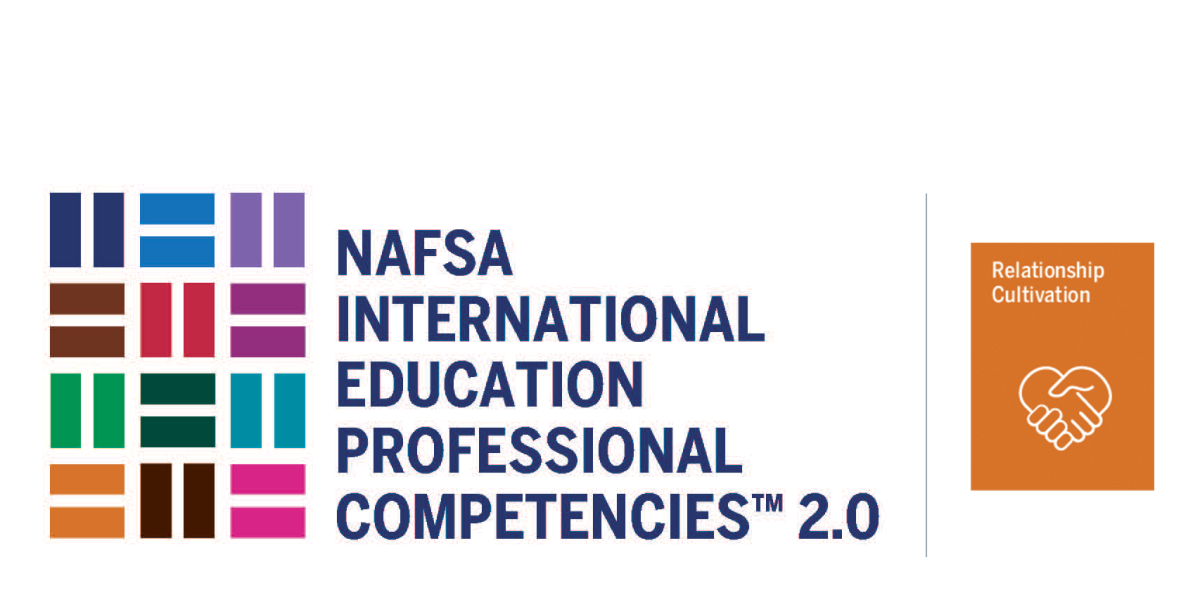
Editor’s note: This article is one in a new series for 2023 that explores one of the 12 International Education Professional Competencies 2.0 in each issue of International Educator. Each written by a NAFSA member, the articles cover how that competency is critical to the future of the field and what it looks like in practice.
As international educators, our role is all about creating meaningful connections—bridging the gap between institutions, stakeholders, and cultures. Our ability to nurture, build, and maintain constructive, reciprocal alliances with a diverse range of stakeholders is a cornerstone skill that empowers both personal growth and professional advancement. Here are three basic principles of relationship cultivation, all predicated on connection, that have informed my career.
1. Connect with a “platinum” approach.
Over the years, I’ve noticed something that keeps popping up among us international educators: it’s the struggle to get the message across about how important international education is to the folks who matter—our key stakeholders. We’re really keen on pushing our goals, so we tend to make passionate pleas to our stakeholders, listing all the cool things international education brings. We present our case with so much enthusiasm because we hope they’ll respond in kind. In other words, we follow that “Golden Rule”: “Treat others as you’d want to be treated.”
But you know what? There’s another way, something I like to call the “Platinum Rule”: “Treat others as they’d want to be treated.” It’s less about pushing our agenda and more about aligning what we do with what our stakeholders are looking for. Instead of going, “Hey, this is what we need,” we could be asking, “What can I do for you?” or “How can I make things easier?” This way, we build connections and keep communication channels wide open.
The real challenge here is stepping out of our own shoes and seeing things from the stakeholders’ perspective.
The real challenge here is stepping out of our own shoes and seeing things from the stakeholders’ perspective. By going with the Platinum Rule, we’re shifting gears from trying to convince or persuade them to actually working together. It’s about understanding and cooperating, which not only helps our stakeholders but also keeps the ball rolling for international education.
2. Connect across changing roles.
Throughout my career, I’ve witnessed a sentiment shared among many of us: the desire for recognition and respect within our professional community. As I’ve moved across various institutions and organizations, my professional networks have provided constant validation and empowerment.
Often, we gravitate toward relationships that serve our immediate interests—like boosting sales or increasing student numbers—leading us to lose interest when individuals transition to roles of seemingly diminished value.
For example, I was once invited to serve on a national advisory board, only to be asked to step down upon leaving my institution at the time. This dismissal serves as a reminder that the worth of our professional connections should not be defined solely by their immediate utility.
We need to remember and respect our colleagues, even if their current role or institutional affiliation doesn’t align with our goals.
In our tight-knit community, being genuine and sincere are vital to maintaining healthy professional relationships. We need to remember and respect our colleagues, even if their current role or institutional affiliation doesn’t align with our goals.
As international educators, we can nurture a more supportive and respectful environment by celebrating the diversity of roles, experiences, and transitions within our field. Our community thrives on growing together, learning from each other, and sharing a passion for international education. By staying true to ourselves and showing respect to all our colleagues, no matter how they fit into our immediate plans, we make our profession stronger. This ensures that professional relationships remain a valuable part of the journey for everyone, no matter where they’re headed.
3. Connect by building bridges.
A common thread among us international educators, no matter our locations or job titles, is our remarkable ability to forge connections and relationships across a diverse spectrum of people from all walks of life. By constructing these bridges, we create a dynamic space where diverse viewpoints coexist, paving the way for fresh ideas and collective accomplishments. These bridges possess the strength to dissolve barriers, motivating people to engage across various boundaries—such as departments, projects, or cultural differences.
In every role I’ve taken on throughout my journey, a constant mission of mine has been to bring people together. Whether establishing partnerships between institutions, encouraging students to immerse themselves in host cultures, or even rallying colleagues for professional consulting gigs, my primary role has always centered on creating magic when diverse peoples converge—or, as I like to put it, making 1+1=3.
By constructing these bridges, we create a dynamic space where diverse viewpoints coexist, paving the way for fresh ideas and collective accomplishments.
Making connections requires skill and time. I’ve lost count of the times I’ve endeavored, sometimes stumbling, to aid businesses to connect, get colleagues to form partnerships, or make institutional collaborations click. Along this path, I’ve honed my knack for understanding various cultures, experimented with strategies to handle conflicts, and, yes, learned to admit when I’ve made mistakes. Truth be told, I’ve relished every aspect of this journey.
Relationship cultivation defines our essence as international educators; it’s the heartbeat of what we do, and it fortifies the relevance and strength of our profession. It is, without a doubt, a vital competency for all international educators. We must dedicate ourselves to nurturing, building, and sustaining constructive, reciprocal alliances, as this lies at the core of our work. •
Anthony C. Ogden is the founder and managing director of Gateway International Group. He has held senior leadership positions at institutions such as Pennsylvania State University, the University of Kentucky, Michigan State University, and the University of Wyoming.
NAFSA Resources
About International Educator
International Educator is NAFSA’s flagship publication and has been published continually since 1990. As a record of the association and the field of international education, IE includes articles on a variety of topics, trends, and issues facing NAFSA members and their work.
From in-depth features to interviews with thought leaders and columns tailored to NAFSA’s knowledge communities, IE provides must-read context and analysis to those working around the globe to advance international education and exchange.
About NAFSA
NAFSA: Association of International Educators is the world's largest nonprofit association dedicated to international education and exchange. NAFSA serves the needs of more than 10,000 members and international educators worldwide at more than 3,500 institutions, in over 150 countries.
NAFSA membership provides you with unmatched access to best-in-class programs, critical updates, and resources to professionalize your practice. Members gain unrivaled opportunities to partner with experienced international education leaders.


